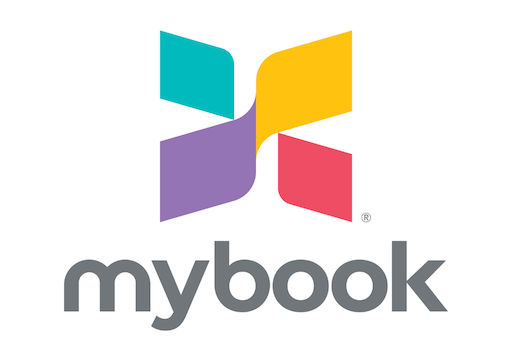Switch Google Analytics Consultant: Your Effortless Guide to Success
Switching Google Analytics consultants can feel like you’re navigating a complex maze. With a multitude of options and methodologies, finding someone who truly aligns with your business goals can seem overwhelming. However, taking this step can lead to more effective data insights that propel your business to new heights. This guide will help simplify the switch, ensuring a smooth transition while maximizing your data analysis results.
Understanding Why You Might Need to Switch
The first question you might ask yourself is, “Why switch Google Analytics consultant?” Perhaps your current consultant isn’t delivering the insights you need or, worse, they might be misinterpreting your data. I remember a friend who ran an e-commerce site struggling to understand why her conversion rates were stagnant. After a year of collaboration with a consultant who didn’t focus on her business goals, she decided to switch. The new consultant quickly identified critical issues in site navigation and user experience, resulting in a dramatic increase in sales. This real-world example highlights just how impactful the right consultant can be.
When evaluating whether a switch is necessary, consider these factors:
1. Communication: Are your reports clear? Do you feel heard in discussions?
2. Expertise: Does your consultant stay updated with the latest trends in Google Analytics and data analysis?
3. Results: Are you seeing measurable improvements in your business metrics?
Steps to Switch Google Analytics Consultant
Feeling ready to make a change? Here’s a step-by-step approach to help make the process seamless.
1. Assess Your Needs
Before diving into a new consultant search, take time to assess what you truly need. Are you looking for someone with expertise in a particular area, such as e-commerce tracking or SEO integration? Create a list of key goals and questions to guide your search.
2. Research Potential Consultants
It’s time to broaden your horizons. Use platforms like LinkedIn, Google My Business, or industry forums to find reputable consultants. Pay attention to reviews and seek case studies that demonstrate their ability to drive results. During this stage, it might help to reach out directly for initial consultations to gauge compatibility.
Once, I interviewed two potential consultants. One was knowledgeable but lacked communication skills, and the other—while maybe not as technically savvy—communicated recommendations clearly. I ultimately chose the one who could explain things in an accessible way, and it turned out to be a fantastic decision.
3. Plan the Transition
Transitioning between consultants can be a complex procedure. Plan how you’ll transfer existing data, documentation, and any ongoing projects. It’s essential to ensure that the new consultant understands your previous findings and recommendations. Schedule a handover meeting where both consultants can interact, allowing for a smoother knowledge transfer.
4. Set Clear Expectations
Once you’ve chosen a new consultant, make sure to set clear expectations about reporting frequency, preferred metrics, and any other pertinent goals. Defining these upfront can lead to a more productive partnership. I once worked with a consultant who initiated bi-weekly check-ins, which allowed us to tweak strategies based on real-time data analysis regularly.
5. Monitor Progress
After making the switch, keep a close eye on the results. While you won’t see miracles overnight, the new consultant should begin to provide clearer insights and a fresh perspective within a few weeks. Don’t hesitate to provide feedback or request adjustments if something feels off; open communication is vital to success in these partnerships.
Measuring Success in Your New Partnership
Success isn’t just about numbers; it’s about understanding what those numbers signify. Your new consultant should help you interpret the data meaningfully and provide actionable insights based on trends and patterns. Ask for dashboards or reports that make data digestible and enable you to make informed decisions.
In the case of my e-commerce friend, she not only improved her sales but learned to better understand her customer behavior over time. This realization was instrumental in refining her marketing strategies, enabling her to continually attract her target audience.
Final Thoughts
Making the decision to switch Google Analytics consultants should not induce anxiety. With thoughtful planning, clear communication, and a keen eye on your goals, you can find a partner who really helps drive your business forward. Each transition offers room for growth; embrace the journey as an opportunity to better understand your data and enhance your decision-making process.
FAQ Section
Q1: How long should I expect it to take to see results after switching consultants?
A1: Typically, you might start to see preliminary results within a few weeks, but significant changes often take a few months as your new consultant analyzes trends and implements strategies.
Q2: What should I do if my new consultant doesn’t meet my expectations?
A2: Communicate openly with them about your concerns. A good consultant will appreciate constructive feedback and work with you to make necessary adjustments.
Q3: Can I switch consultants multiple times if necessary?
A3: Yes, you can switch consultants as many times as needed. However, it’s crucial to assess and understand why previous partnerships didn’t fulfill your needs, to avoid repeating the same mistakes.
Related Posts
Switch Google Analytics Consultant: Effortless and Effective Guide
Switching your Google Analytics consultant doesn’t have to be overwhelming—its an opportunity to enhance your data insights and drive your business forward. Whether youre seeking more tailored strategies or...
Switch Google Analytics Consultant: Effortless and Exclusive Tips
Switching Google Analytics consultants doesnt have to be overwhelming; with the right approach, you can ensure a smooth transition that revitalizes your data strategy. Let’s explore effortless tips to help...












